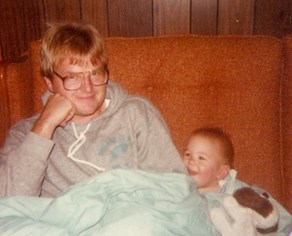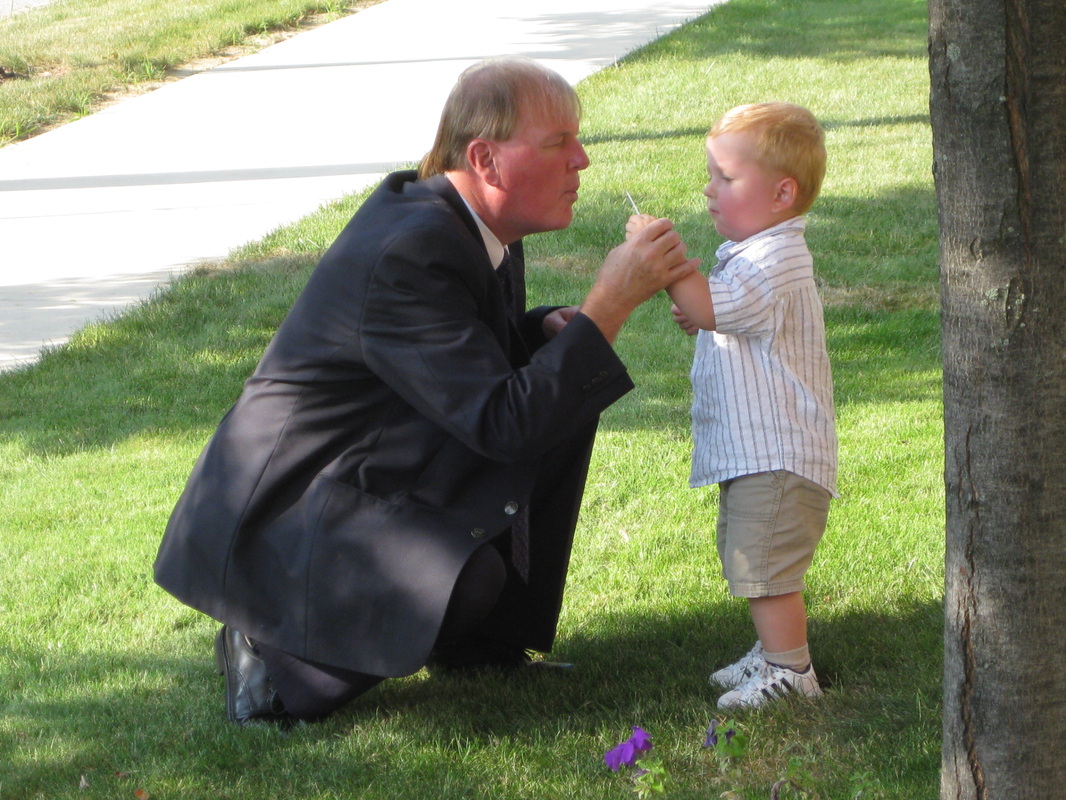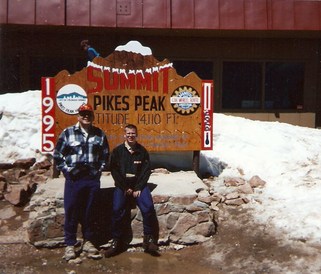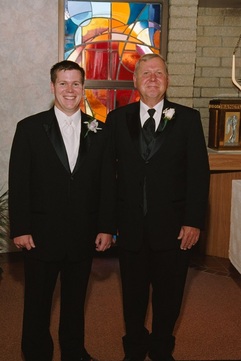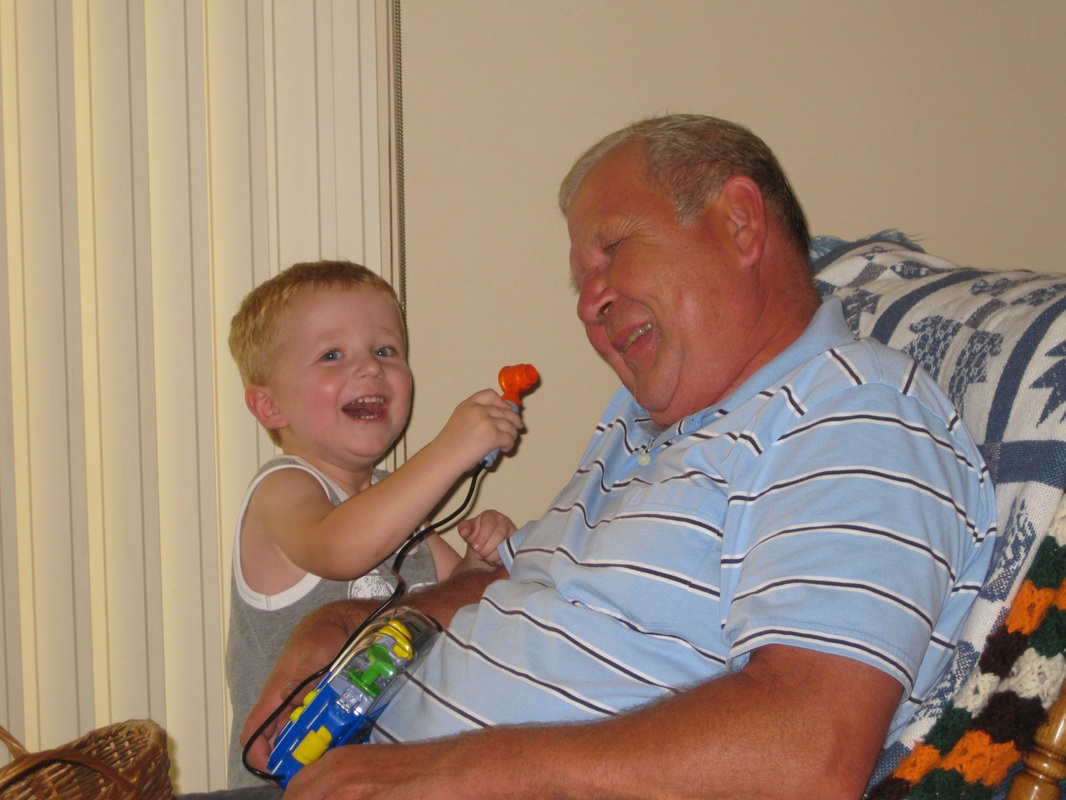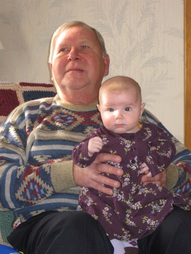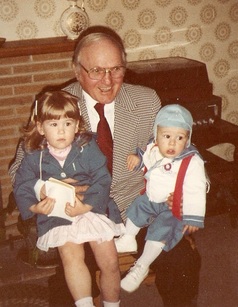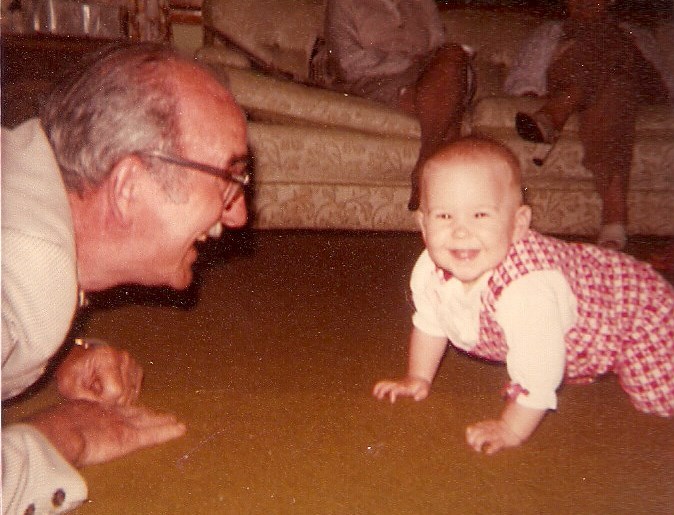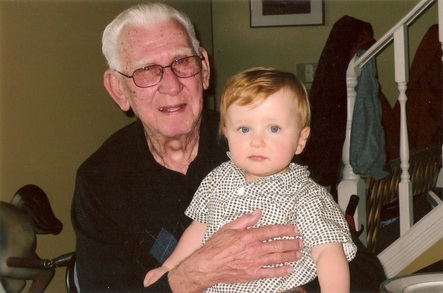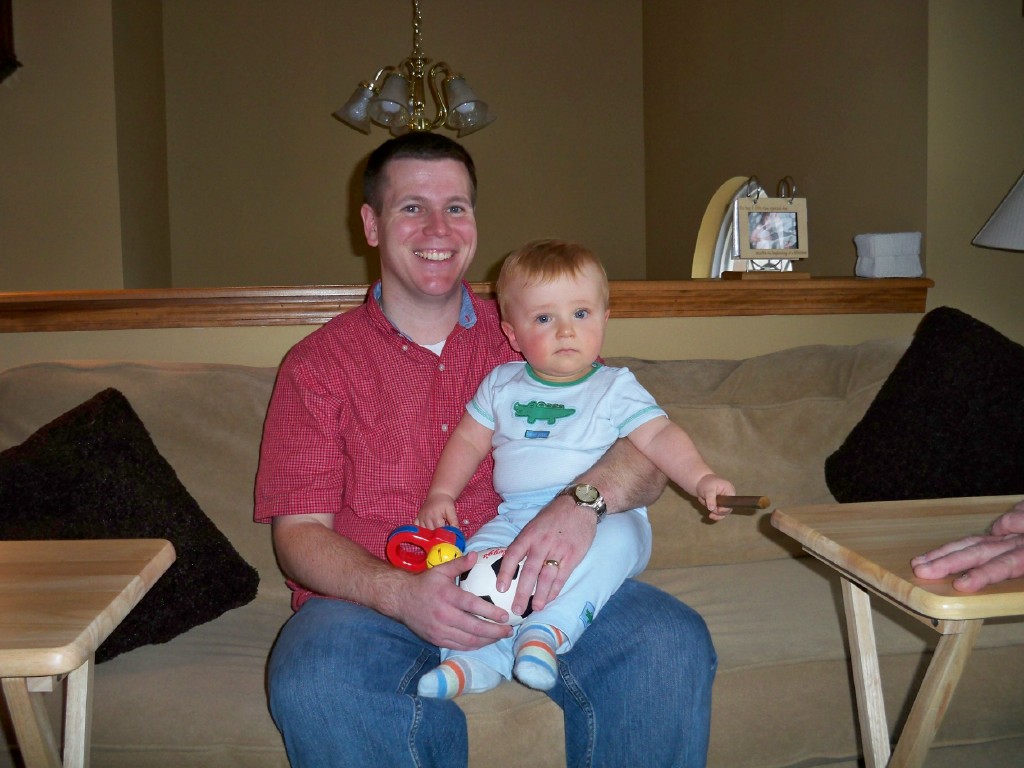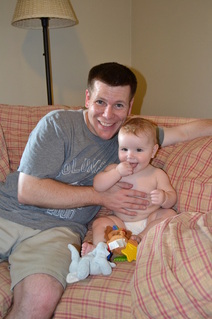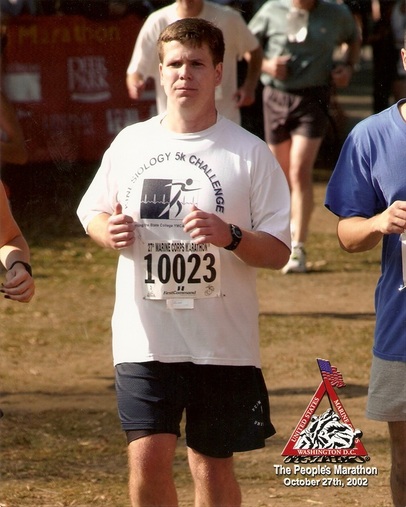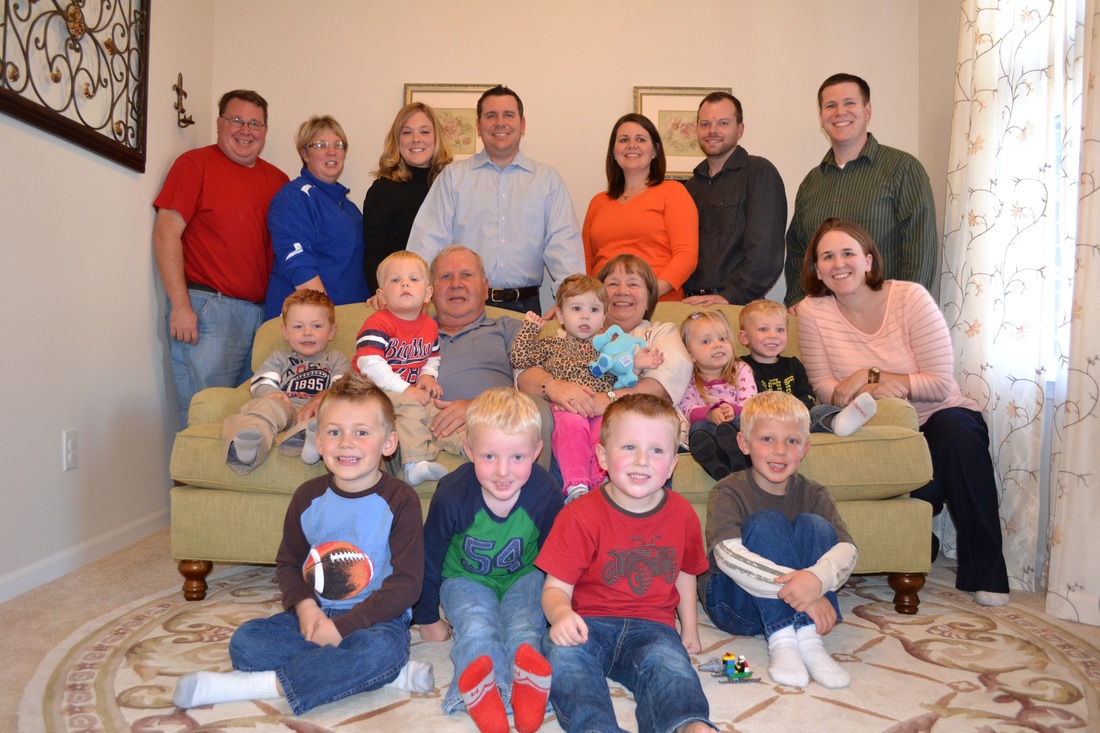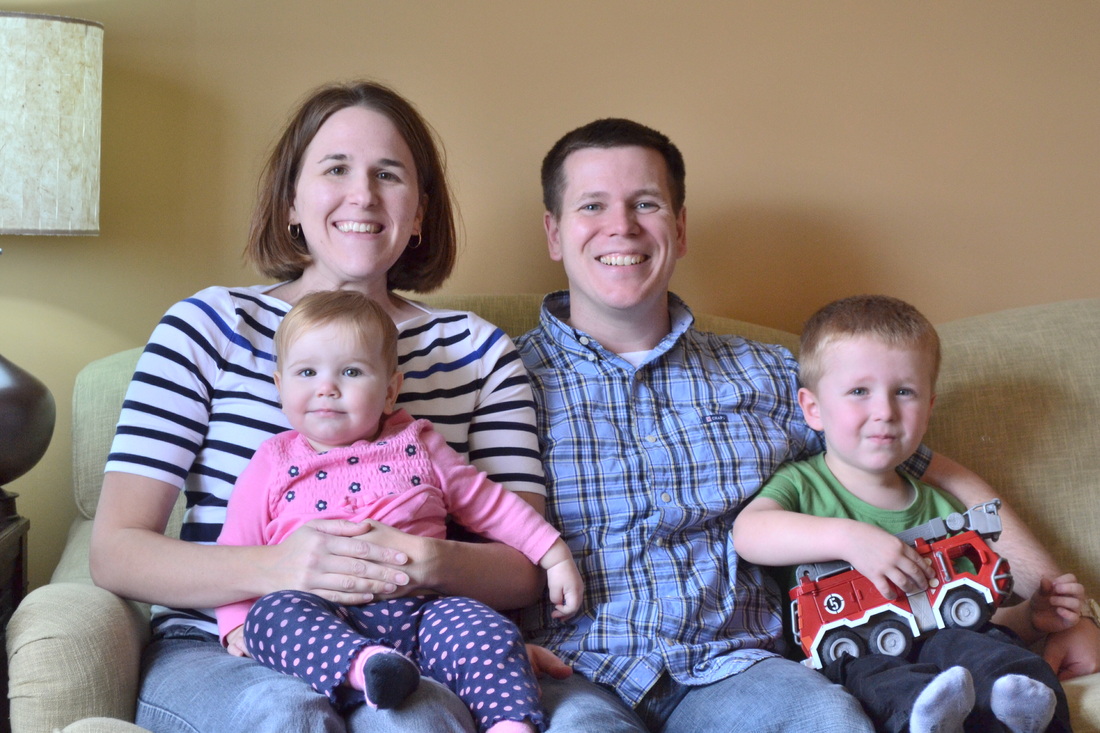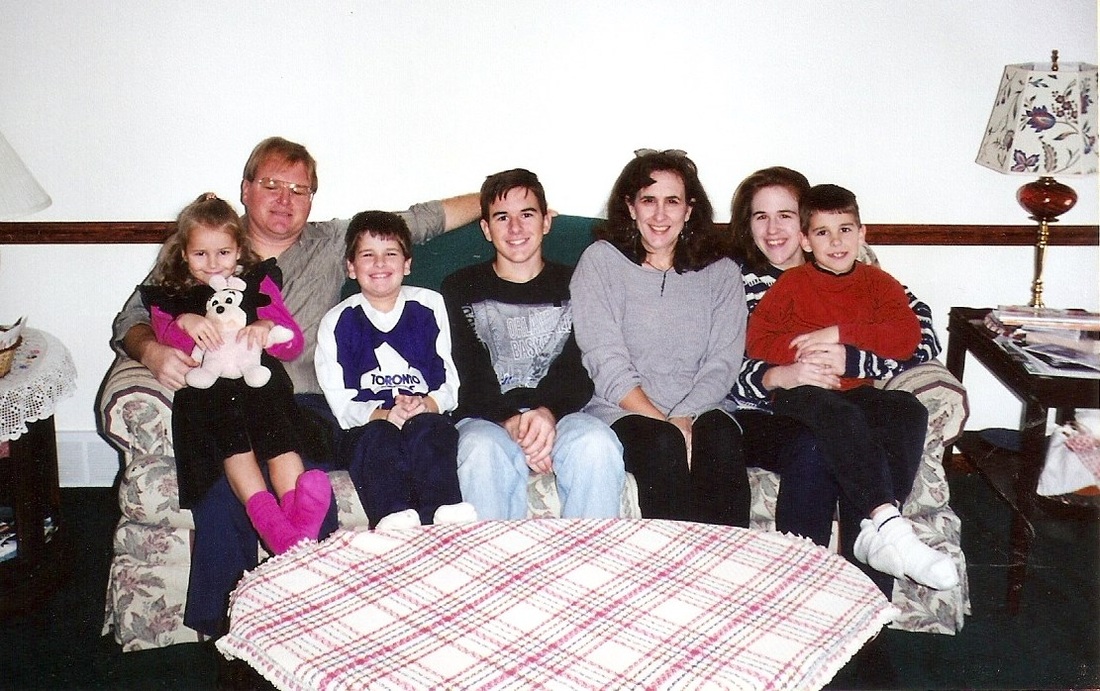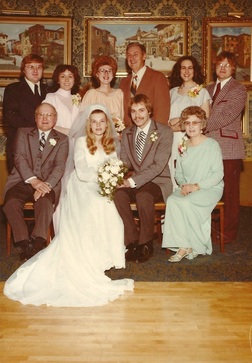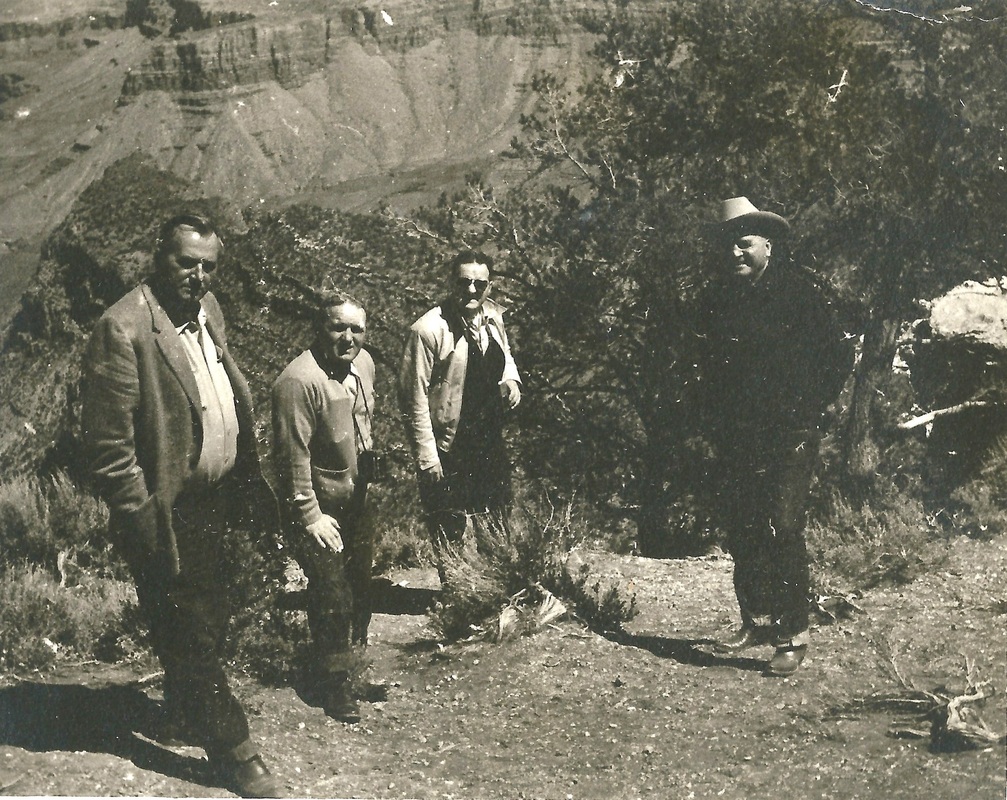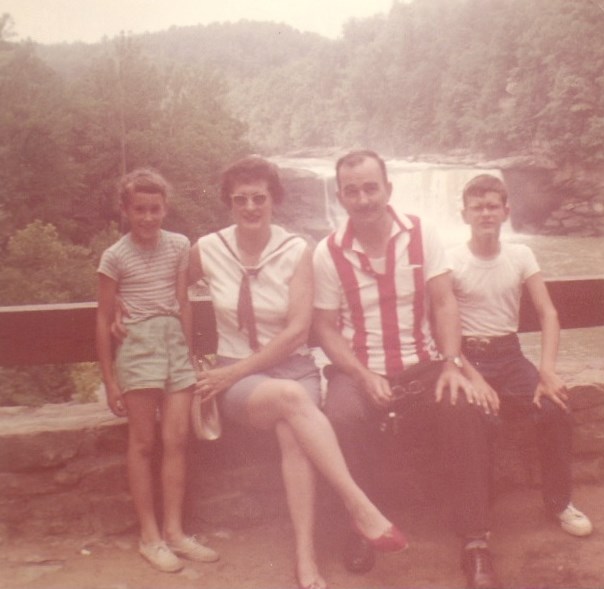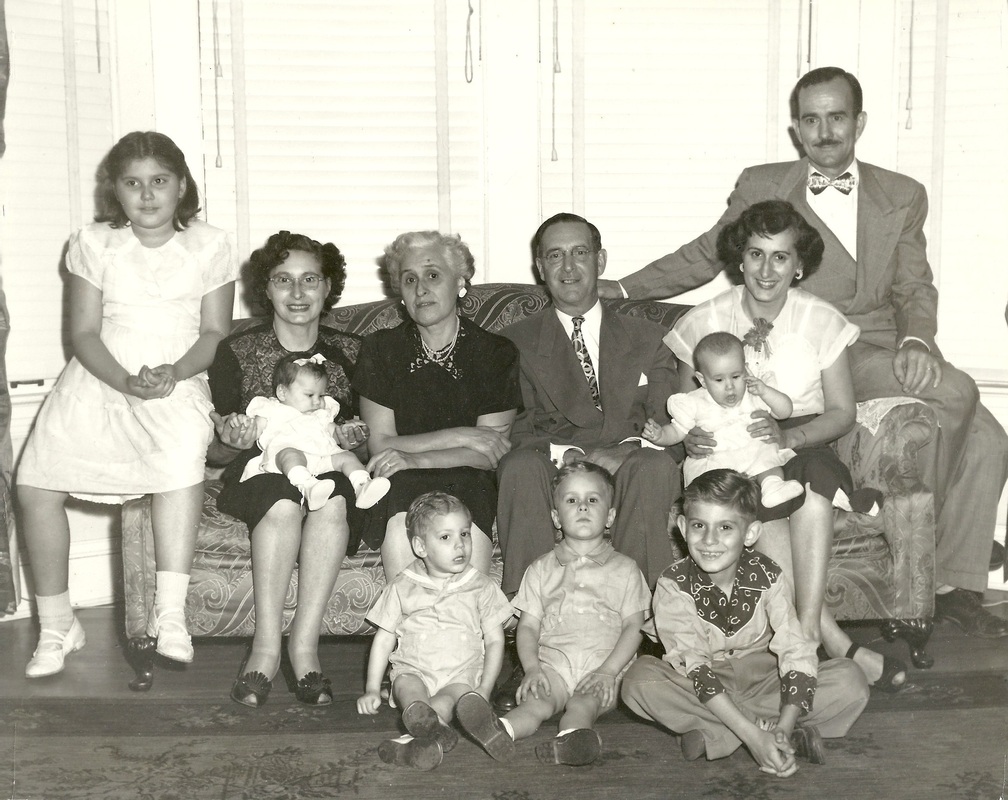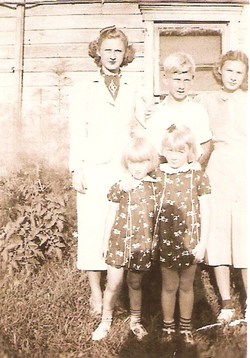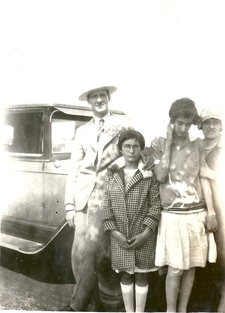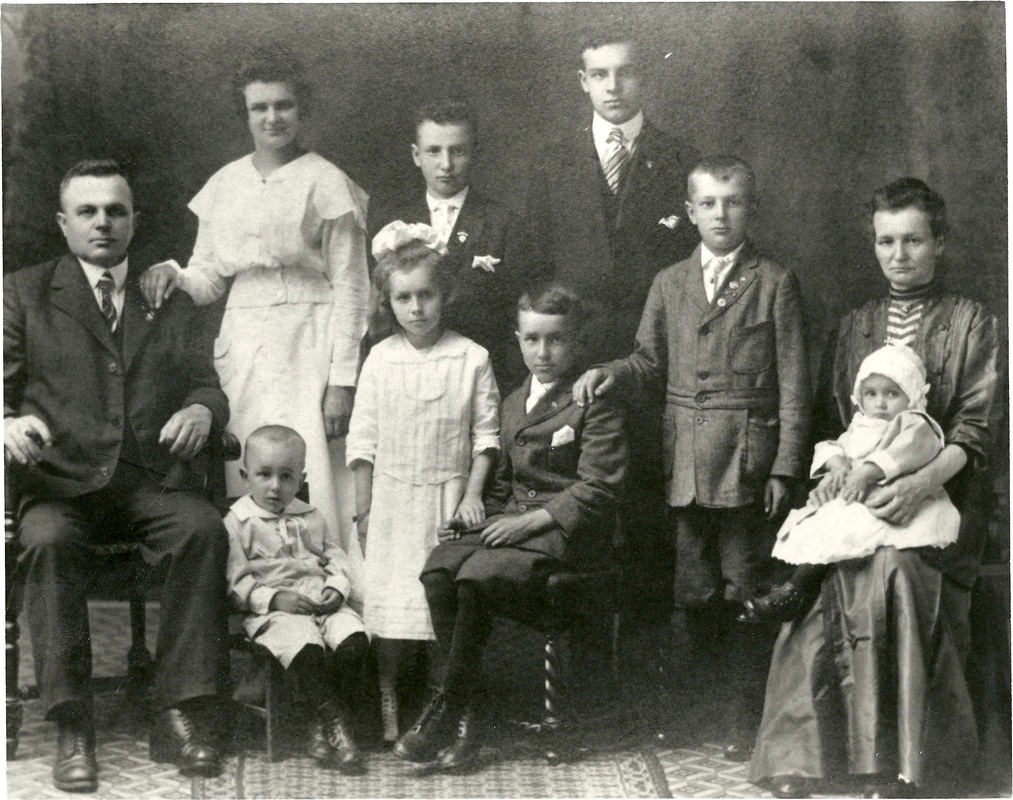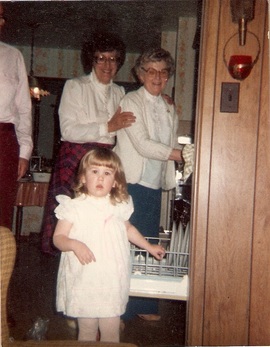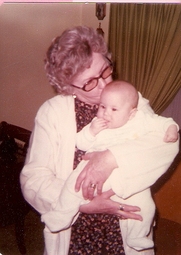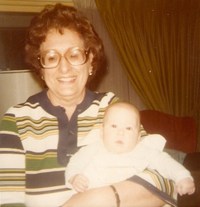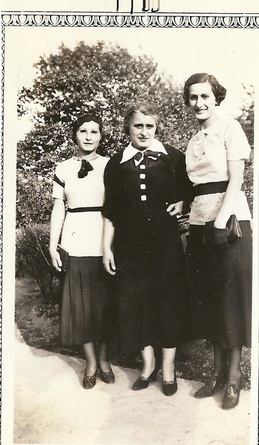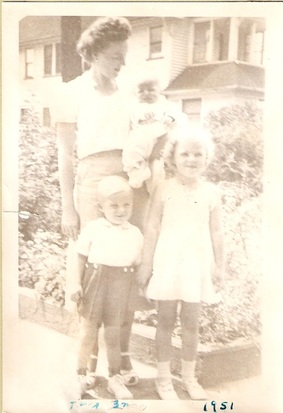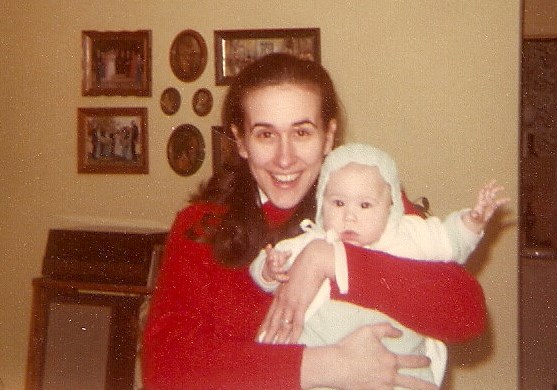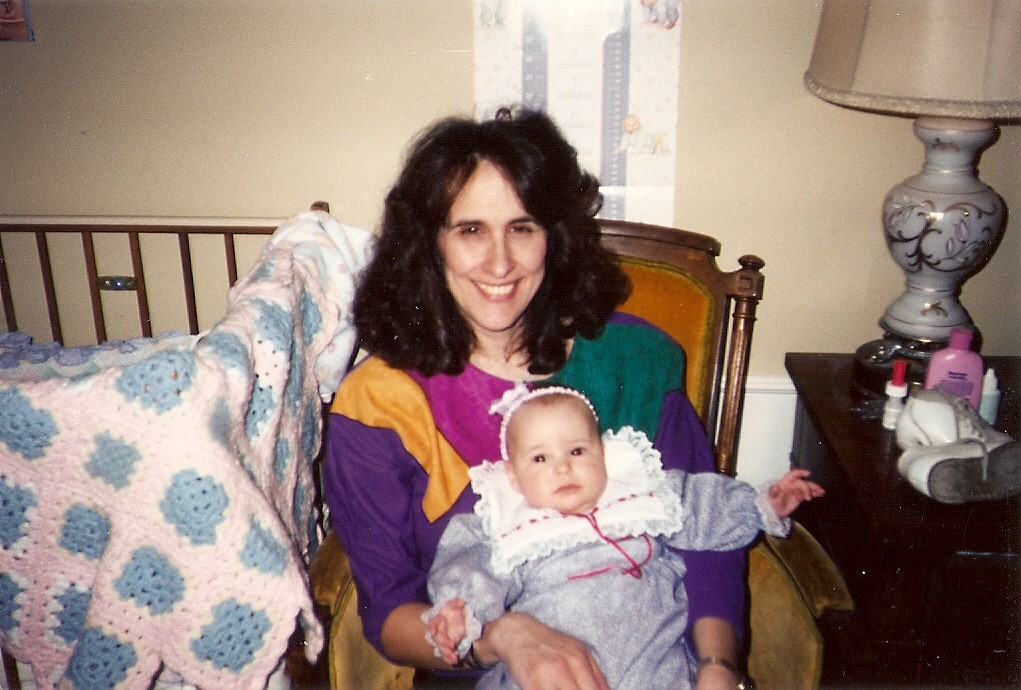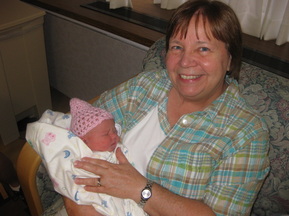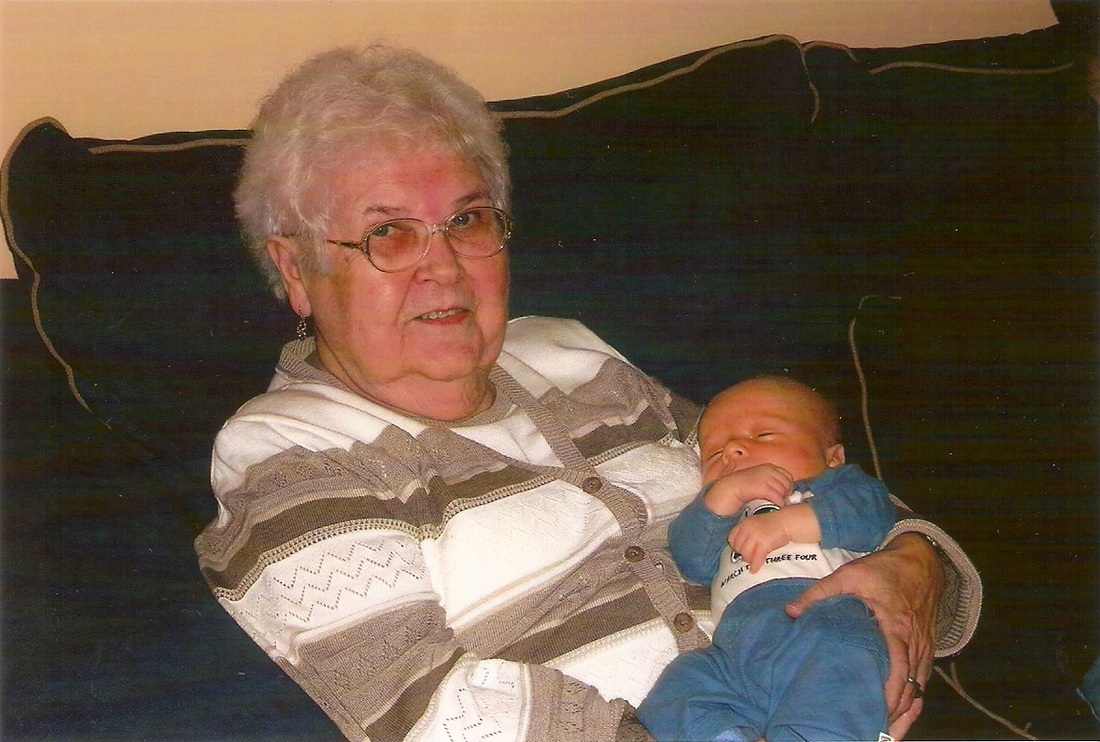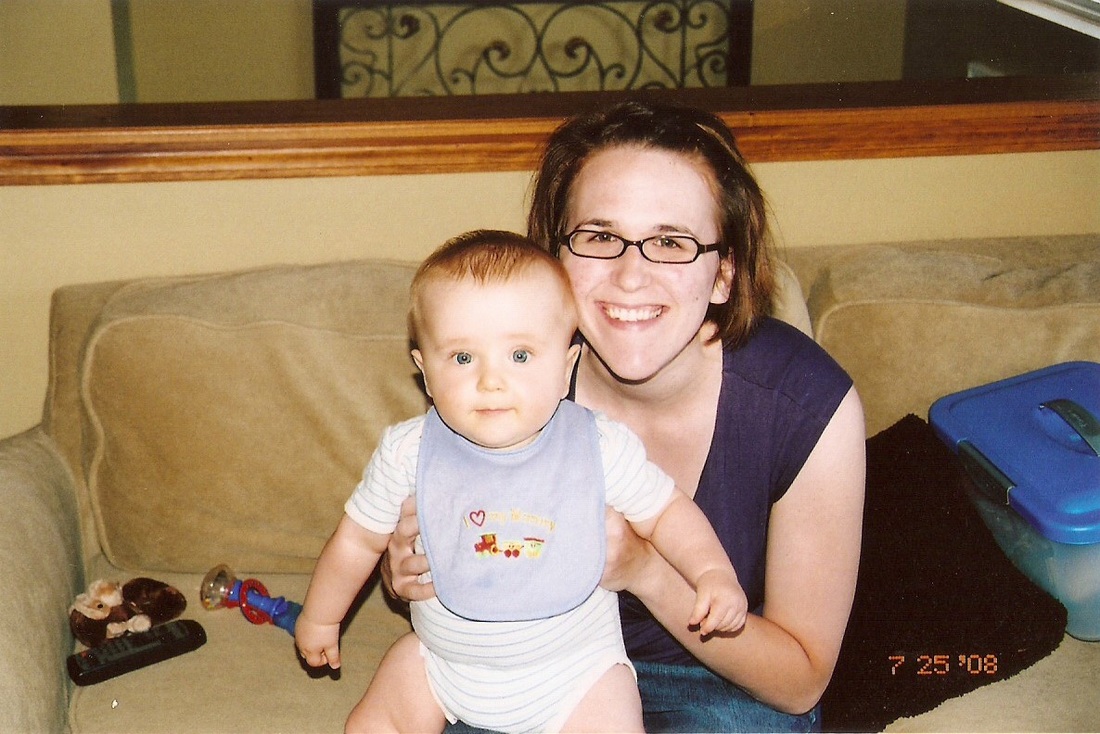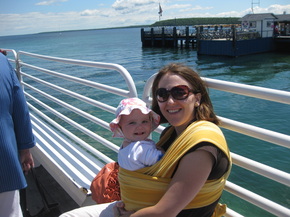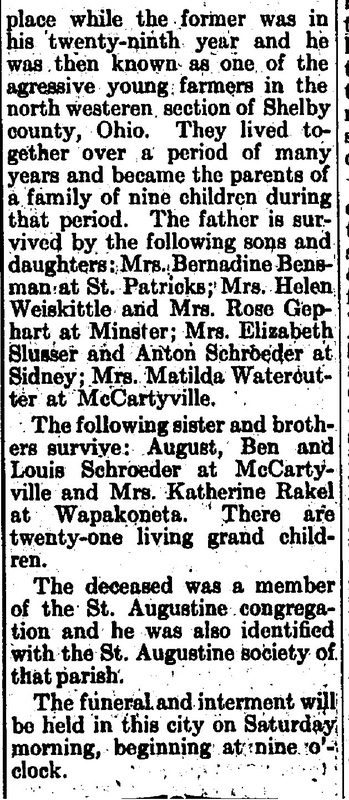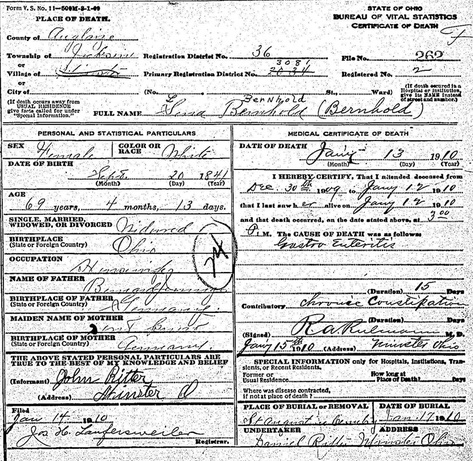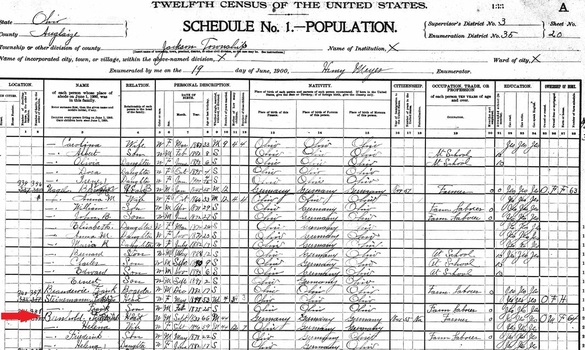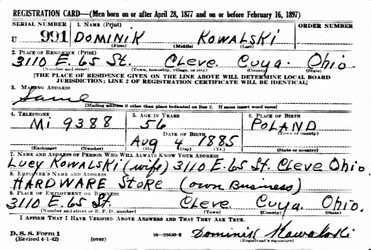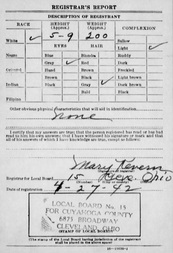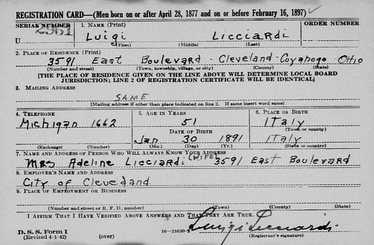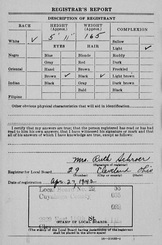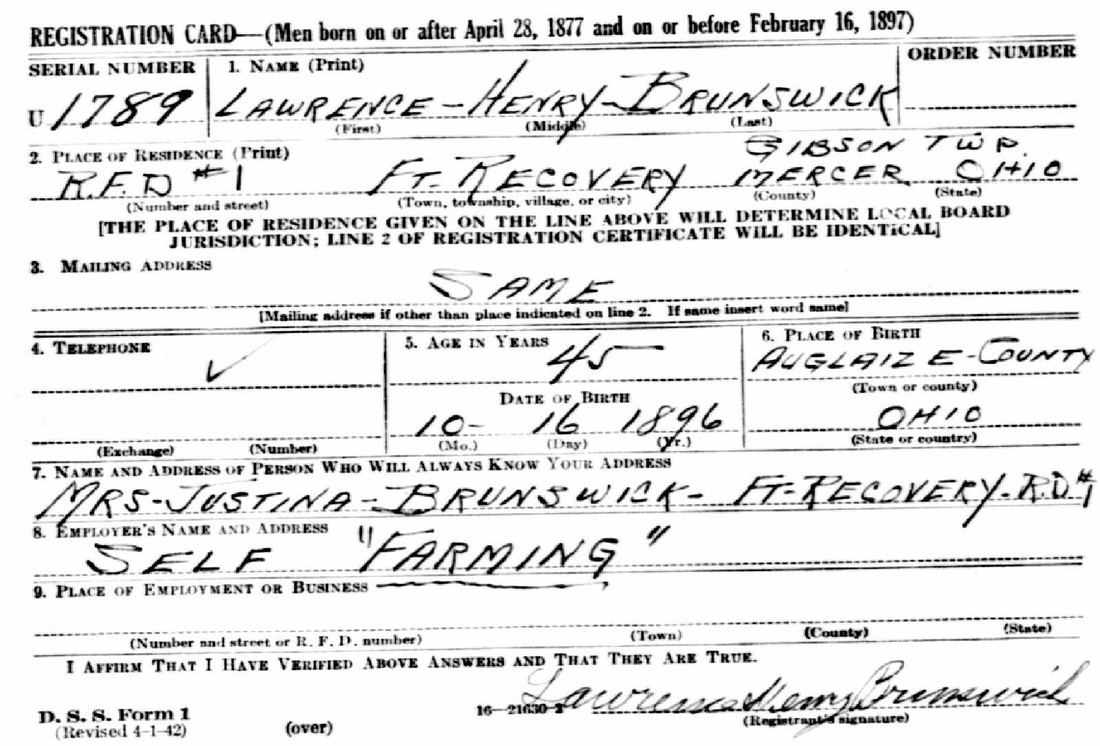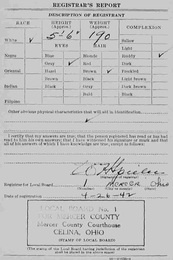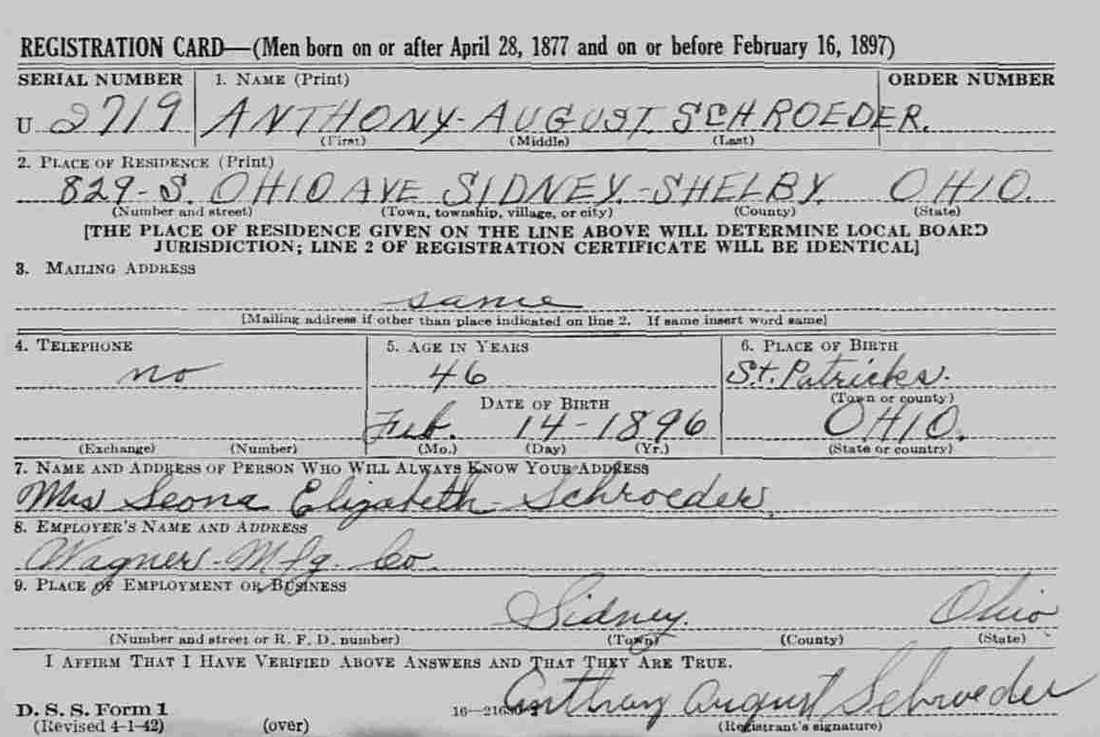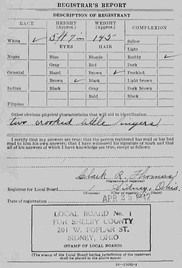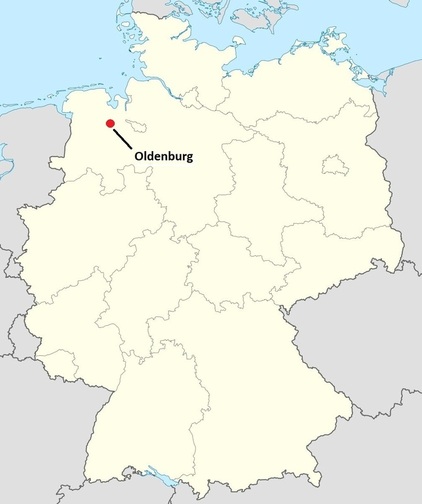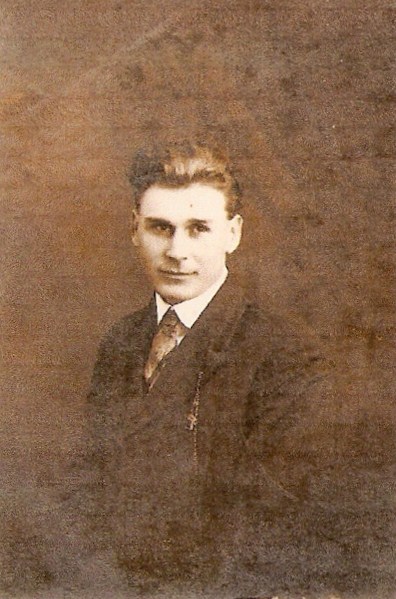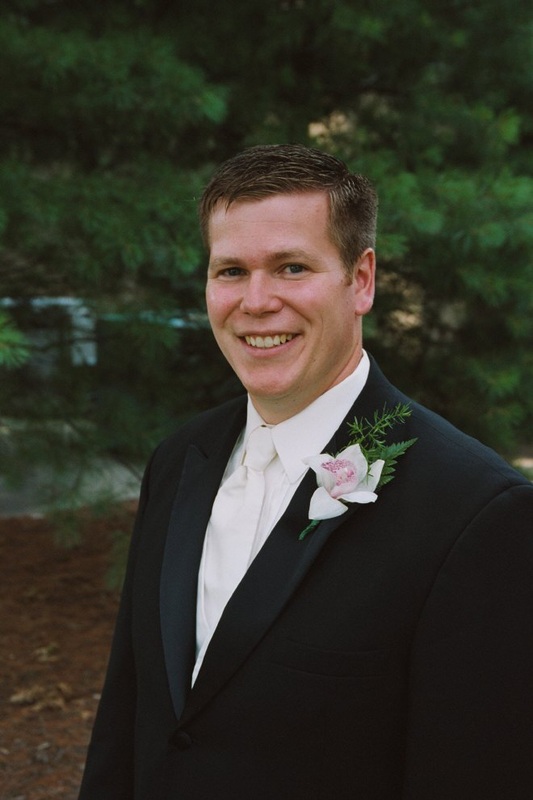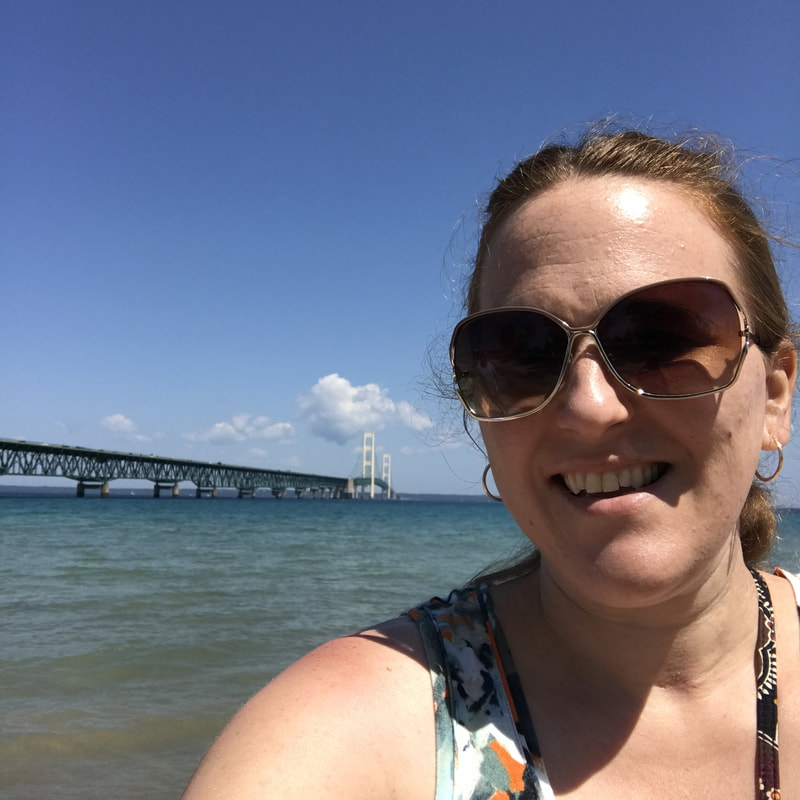|
A collection of photos celebrating all of the fathers, grandfathers, and great-grandfathers in our families! Enjoy!
0 Comments
Today, June 5, is National Running Day. I thought I would 'celebrate' by posting a photo of my husband running in the Marine Corps Marathon in Washington D.C. back in October of 2002. (Wow, I can't believe that was ten years ago.) It was a great accomplishment for him; he trained for months and I was proud of him when he finished. He doesn't run too much anymore, mostly because our kids keep us more than busy. I've always been jealous of this accomplishment. Due to a medical condition in my leg, I can't run, but I feel like I would have made a good runner. But I'm very glad he was able to do it!
Today, May 15, is the United Nations International Day of Families. Some of these family photos I have posted before, and some I haven't. I hope you get to enjoy the day with your family members! Just thought I would post some favorite pics of the mothers in my family: Within the past year, year and a half, my parents-in-law came by for a visit, and told us about how they had to "scold" my husband's 87-year-old grandfather after learning that he had climbed up a ladder by himself to clean out the gutters of his house. This particular conversation popped into my head after finding this old newspaper article from the front page of The Minster Post, dated 20 Aug 1937: Joseph Schroeder was Grandpa's grandfather (my husband's gg-grandfather). As the article mentions, at age 78, he died of injuries sustained when falling off of a ladder after repairing a roof. (Information on his death certificate confirms this cause of death.) A "retired" farmer, he helped people maintain their homes and gardens, a profession he lists on the 1930 Census as "odd jobs." I'm sure that after growing up on a farm and then maintaining his own farm for so many years, he was used to physical labor, and that he probably even enjoyed it. He was also likely driven by his responsibility to continue to provide for his family; his daughter, Helen, was widowed when she was only about 28, and she and her three young daughters lived with him. Coincidentally, a week or so after I found that newspaper article, I found another one about an injury sustained to the grandfather of my husband's maternal grandmother. He was 71 at the time, a widower, lived with two of his sons, yet still was compelled to repair his barn. (The Minster Post, 11 Sep 1942). (As a side note, I'm not sure how many "city-folk" realize how dangerous a profession farming was and continues to be even in the modern day. The rural newspapers I've been combing through are full of various farm-related accidents and deaths. Another subject for another blog post, perhaps.)
Regardless of the time period and/or location, EVERYONE knows or has known an elderly person who physically does more than he or she probably should. My grandfather, who lived as a widower for nearly 20 years, was notoriously stubborn about nearly everything. Fortunately, out of blind luck, he was never seriously injured from trying to shovel his (hilly) driveway or anything like that. My maternal grandmother, however, had a terrible fall down her basement stairs when she was living alone and broke her hip. I think that incident helped to convince her to come and live with us. It's human nature to want to continue to be able to do the things you've always been able to do, and it's difficult to admit to yourself that your body isn't what it used to be, especially when your mind feels just as young as it ever did. I believe that I am in a unique situation in which, as a relatively young person, I am able to understand how elderly people must feel when their reflexes get slower, muscles get weaker, joints get more painful, and/or their balance falters. As many of you know, I was born with a chronic vascular disease in my leg that progressively gets worse with age. Every few years, there is something physical that I find I cannot do (without pain) that I used to be able to do. I always go through the same mental process: I panic, I worry, I get angry, but then I ultimately accept it, because what choice do I have otherwise.? I try to direct my interests more towards those things that I still can accomplish. Most healthy, elderly people have not had a lifetime to come to terms with a failing body; either they come to that realization by suffering an accident OR they have to listen to their children, grandchildren, and doctors tell them what they can't do anymore. Hey, that would make me cranky, too. So, cut the old people some slack, let them know you love them and THAT'S why you don't want them to get hurt, and try to empathize with the underlying feelings of frustration behind all the outward stubbornness. (Matrilineal Monday is a weekly prompt from Geneabloggers that encourages bloggers to write about an individual female ancestor or a female ancestor's lineage.) So far in my blog, I've talked mostly about ancestors about whom I have a decent amount of information. Today, however, I'm writing about a woman and her family about whom I have little information. Helena Janning Bernhold is one of my husband's paternal ggg-grandmothers. According to her birth certificate (see below), she was born September 8, 1841 in Ohio and she passed away January 13, 1910 in or near Minster, Ohio (Jackson Twp, Auglaize County). According to the 1900 U.S. Census, she married Frederich ('Fred' or 'Fritz') Bernhold in 1855 or 1856. (I have not yet been able to find a marriage record.) They had 12 children, only 7 of whom were still living at the turn of the century. Her death certificate and the 1900 census form say that she was born in Ohio, yet in the 1860 and 1880 census schedules she is listed as being born in Germany. Grrrr.... Her death certificate also mentions that her father's name was Bernard. There is a record of a 'Bernard Johning," age 53, in Auglaize County in the 1850 U.S. Census. He is listed with his wife Catherine and one daughter named 'Lena,' who is listed as being ten years old. It says he and his wife were born in Germany, but that their daughter was born in Ohio. I am pretty confident that this IS the Janning family I am interested in. I have also found an index of people buried in the "Old Section" of St. Augustine's Cemetery in Minster, Ohio. In this index, there is a record of a Bernard Janning who was born in 1796 and who died January 5, 1851. This date of death would explain why I am unable to find him in any future census schedules, although I have not located an actual record of his death (yet). This 1860 census schedule lists a 60-year old "Catherine Bernholt" living with Frederich and Lena and their young daughters, Catherine and Mary. Even though the surname is incorrect, I'm pretty sure this is the widowed Mrs. Janning: the age matches, Frederich's mom was not named Catherine (and I found her elsewhere in this census, anyway), and older widows usually went to live with family members in this period.
Needless to say, I still have many questions about this particular branch of my husband's tree. When did Bernard and Catherine immigrate to America? Where in Germany were they from? Were they married in Germany or Ohio? What was Catherine's maiden name? Did they have any other children besides Helena - if those children were grown, did they immigrate to America as well or did they stay in Germany? When did Catherine die and where is she buried? The best chance I have of answering (some of) these questions definitely requires a trip to Minster, Ohio to look through St. Augustine Church's records. Then, I could really find whether Helena was born in Ohio or Germany and I could look for a marriage record for Catherine and Bernard. It's not a short drive from where I live in Indiana, and it would take some planning, but maybe someday. (How do the Bernholds and Jannings fit into hubby's family tree? Frederich and Helena (Janning) Bernhold are the parents of Anna Bernhold, who married Joseph Schroeder in 1887.) In April 1942, the United States conducted what is now known as the "Old Man's" draft registration. This registration was for men who were born between 1877 and 1897 - those who were 45-60 years old. The intent of this registration was to record the amount and skills of domestic manpower available for home front war support. Two of my great-grandfathers and two of my husband's great-grandfathers registered in this draft (click on pictures below for larger images). Each card lists the registrant's name, home address, date and place of birth, name and address of employer, and a person of close contact (usually a wife, sibling, or parent). The second page of the card also lists physical characteristics of the applicant. Because this occurred in 1942, these cards are a great way of keeping track of where your ancestors lived and worked in between the 1940 Census and the 1950 U.S. Census (which hasn't even been released to the public yet). Try looking up one of your relatives at FamilySearch.org. Dominik Kowalski, one of my paternal great-grandfathers: Louis (Luigi) Licciardi, one of my maternal great-grandfathers: Lawrence Brunswick, one of my husband's maternal great-grandfathers: Anthony A. Schroeder, one of my husband's paternal great-grandfathers:
When I married my husband, I was somewhat looking forward to taking his last name. I had grown up with a Polish surname, and it was actually one of the easier Polish names to spell and pronounce. However, I found that once I left my very ethnic hometown where such names were common, I was continually asked to repeat my name and spell it out S-L-O-W-L-Y (and then they'd still get it wrong!). So, I thought to myself, 'Schroeder' - fairly common and straightforward, right? Well, not so much, really. I soon learned that there are many ways to spell what sounds like schro-der or schro-ter, and that it may actually be pronounced schra-der or schra-ter depending on each family's tradition of saying it. The name Schroeder (and all of is mix-and-match variants like S(c)hra(t)der and S(c)hro(e)ter) is a common and old family name with origins in medieval Northern Germany. It comes from the Middle Low German word(s) schroden/schraden which means "to cut," and it was a surname first given to tailors (people who cut cloth for a living), occasionally shoemakers (people who cut leather for a living), and also to draymen who would drive around large carts and deliver bulk quantities of beer and wine. Now we're talking! I have been able to trace my husband's Schroeder family back to Frank Schroeder, who came to America probably sometime around 1850. I don't know the exact year because I haven't found his immigration ship manifest yet. In the 1860 Census, his place of birth is listed as Oldenburg, Germany, which is in the northern part of the country. Surname information source: http://www.ancestry.com/name-origin?view=3&surname=schroeder
©2012, copyright Emily Kowalski Schroeder My husband, Tony, next to his Great-Grandfather, who was also named Anthony. You can definitely see some family resemblance, can't you? (Lots more hair gel in 2004 Tony's hair - me thinks a little too much? :) Great-Grandfather Anthony was 24 when he was married in 1919; Tony was 26 when we were married in 2004.
©2012, copyright Emily Kowalski Schroeder 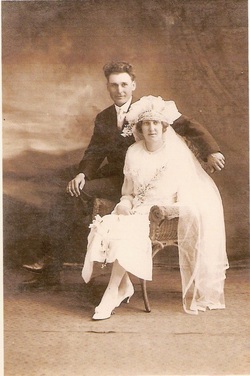 Anthony and Leona (Knob) Schroeder Wedding Photo Anthony and Leona (Knob) Schroeder Wedding Photo I started the process of researching family history about a year and a half ago. I admit my curiosity was sparked by the NBC show, Who Do You Think You Are? which aired on Friday nights (I know, I'm a party animal!) If you aren't familiar with the show, each episode basically follows one celebrity as he/she "researches" a particular side of his/her family. I use the term "research" lightly in this case, because they always got professional librarians, archivists, genealogists, war experts, etc. to do the legwork for them. Honestly, I would have been a fan even if they didn't use celebrities. Dork, I know. Anyways, even though it ran for several seasons, the show was evidently not popular enough among the masses so it was cancelled. The show was heavily sponsored by Ancestry.com, so, several commercials later, I went online and checked it out. Oh look, I can get a free 14-day trial? Great, sign me up! My strategy was to download as much info as I could find in those 14 days and then cancel the subscription. Ha! Fourteen days turned into several months. I started making family trees for my and my husband's family with the information I did know (or with what I could get from my parents and aunts and uncles). The nice, yet time-consuming, thing about Ancestry.com is that you are able to link your ancestors with other people's family trees. I was not lucky enough to find anyone out there who had researched my family tree, but my husband's side was a different story. There are several branches of his tree in which someone (a distant cousin, perhaps?) has gone back hundreds of years to document ancestors. So, it took a while to link up with all those trees while at the same time trying to find and download birth, marriage, military, and death records, census schedules, newspaper articles, etc. I bought a month-to-month membership which I probably kept for 4-5 months. Then a couple months ago, I reactivated my membership for 6 months and picked up where I left off (Ancestry.com does not delete your tree or any info you collect if you cancel your subscription, so you can always go back and reactivate.) While Ancestry.com is the genealogy site that usually gets the most attention, there are several others that I have found VERY helpful in my research. The Church of Latter Day Saints maintains excellent genealogy records from all over the world. The records are kept at their headquarters in Salt Lake City, but they are continually adding digital copies to their website FamilySearch. It is FREE to access their database, which contains some records you cannot find on Ancestry. (One example is death certificates, which are extremely helpful in the research process - more about that later :) The other site that I currently use is GenealogyBank, which is a searchable database of newspaper archives from all over the country. This one, like Ancestry, you also have to pay for, but the rate is only about $6 a month. Has been helpful in finding obituaries, - more about those later, too - engagement/wedding announcements, and general articles about family members. Before joining this one, though, make sure they have newspaper records from the town/area where your ancestors lived. I have found a lot of stuff about my family on this site, but virtually nothing from my husband's side because they don't (yet) have the newspaper archives from western Ohio. There is another site called Fold3, which has mostly military and war records, BUT it also has U.S. citizenship and naturalization records (another thing Ancestry.com doesn't have). You can do a seven-day free trial of this site, which is plenty of time to download what you need and be on your way (as long as you know who you are looking for). So, you may ask, "Why spend the money to find out stuff about dead people?" I tell my husband, "I don't have any other hobbies (aside from a random knitting project here and there), I don't get mani/pedis or buy many shoes (We'll "thank" Mother Nature for that one, I guess.), so I'd like to use some money for this research." Plus, I feel like it's worth it for my kids' sakes, just so they have a sense of where they came from. I know I've always found history more interesting if I learn it through reading biographies and learning about the PEOPLE that made the history happen. When my kids are older and complaining about how history class is SO BORING, I'll show them all this stuff about THEIR family and hopefully that will make it more interesting to them. Maybe... ©2012, copyright Emily Kowalski Schroeder |
Emily Kowalski SchroederArchives
April 2017
Categories
All
|
| The Spiraling Chains: Kowalski - Bellan Family Trees |
|
